Spring Schedule for CSDE Workshops and Working Groups
|
In spring quarter, CSDE will be hosting a workshop series and several working groups. Students, faculty, and staff are all welcome to register and we welcome registrants from outside the University of Washington for our remote workshops as well.
Please reach out to CSDE’s Training Director, Jessica Godwin (jlg0003@uw.edu), if you have additional workshops you would like to see offered in the future and we will do our best to accommodate those requests. View the schedule as a pdf here.
CSDE Workshops
No remaining workshops this quarter.
CSDE Working Groups
- Computational Demography Working Group
- Date: Wednesdays @ 9AM-10AM
- Location: Raitt 223/Zoom
- Contact: June Yang (jyang32@uw.edu) and Ihsan Kahveci (ikahveci@uw.edu)
- Biomarker Working Group
- Date: 1st Thursdaysof each month (4/4, 5/2, 6/6) @ 12:30PM-1:30PM
- Location: Raitt 223
- Contact: Tiffany Pan (tpan@uw.edu)
- Migration & Settlements Working Group
- Date: Every other Friday @ 9:00AM starting March 29th
- Location: Raitt 114/Zoom (meeting link)
- Contact: Aryaa Rajouria (rajouria@uw.edu)
(read more)
|
 |
*New* Have an idea for an NIH application? Here is when/what/who to email about your idea!
|
At a recent meeting, Rebecca Clark, chief of the Population Dynamics Bureau (PDB) at NICHD, provided useful insights on how researchers developing new proposals should contact officials at NIH. Her remarks were focused on PDB at NICHD, but the advice seems broadly generalizable to other institutes as well. She states: If you have specific aims, please send them to just one PDB Program Officers in one email. (NB: Do not send separate emails to each program officer within a branch, since they all confer and collaborate on any incoming inquiries.)
All potential applicants, including those who have prepared specific aims, should send responses to the following items and attach to the email inquiry:
(read more)
|
 |
Grant Writing Summer Program (GWSP) (Due 5/10/24)
|
Applications are now open for this program, which assists scholars in preparing applications to the National Institutes of Health (NIH). More info here, and application page here. Past participants report great success, and lots of support and even fun along the way. Applying to the GWSP is open to CSDE affiliates (UW and external) as well as to local post-docs writing K awards with one or more CSDE affiliates on their mentoring team.
(read more)
|
 |
*New* Issue of Journal of Ethnic and Migration Studies
Read Volume 50, Issue 10 here!
(read more)
*New* Issue of Journal of Population Economics
Read Volume 37, Issue 1 here!
(read more)
*New* Journal of Marriage and Family
Read Volume 86, Issue 3 here!
(read more)
*New* IPUMS Data
|
IPUMS released new data and updated several datasets, including IPUMS International, IPUMS CPS, and IPUMS USA. There are also several opportunities to give feedback, including on proposed changes to the American Community Survey and Puerto Rico Community Survey. Read more in the full story!
(read more)
|
 |
*New* Evans School Seminar with James M. Thomas (5/1/24)
The Evans School invites you to a seminar with Dr. James M. Thomas (Department of Sociology, University of Mississippi) on Wednesday, May 1st from 11:30-12:30 PM in 360 PAR. Dr. Thomas’s research has been driven by questions within two interrelated fields of inquiry: histories of race and racism, and contemporary practices of race and racism. He employs a variety of interpretive methods to illuminate how meanings of race and racism arise within certain socio-cultural contexts, and how social actors reproduce and contest those meanings in everyday practices and encounters. Dr. Thomas has examined how institutions of higher learning implement diversity initiatives and where these efforts fall short. His most recent project examines whiteness amongst individuals in the American South. This new project seeks to bring into sharp relief the ambivalence, discomfort, and reflections around whiteness that are broadly missing in the sociological study of whiteness. This session is co-sponsored with the Department of Sociology. There will be opportunities to meet with Dr. Thomas during his visit.
(read more)
*New* Invitation to the Horizon Europe Presentation: Research Opportunities in the EU (5/1/24)
|
Please join Dr. Florent Bernard, Counselor for Research and Innovation at the EU Delegation to the US for a presentation of the Horizon Europe program and EU opportunities for US researchers. Horizon Europe is the EU’s key funding program for research and innovation. Horizon Europe tackles climate change, helps to achieve the UN’s Sustainable Development Goals and boosts the EU’s competitiveness and growth. The event will take place on Wednesday, May 1st from 2:00-3:00 in room 202 (The Simpson Center Room) in the Communications Building at UW.
(read more)
|
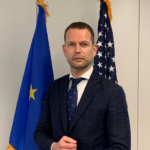 |
*Reminder* Fostering Connections in AI and Health (5/8/24)
|
This is a friendly reminder that the Population Health Initiative is co-hosting a spring quarter Open Space-style event, “Fostering Connections in AI and Health,” on Wednesday, May 8, 2024, from 10 a.m. -1 p.m. in the UW Husky Union Building (HUB), room 145. The goal of this gathering is to help facilitate new collaborations between UW faculty researchers who are interested in applying generative AI and large language models to pressing health challenges. Those who attend will set the agenda for discussion, offering to convene discussions on possible topics or projects where collaboration is sought. The formal program will be followed by a more informal networking lunch. Please RSVP to help us count you in.
(read more)
|
 |
*New* Register for the Climate Solutions Symposium (Posters due 5/8/24, Occurring on 5/23/24)
|
Join the College of Built Environments for our inaugural Community of Practice Climate Solutions Symposium on May 23rd from 5:00-7:00pm. Register here! Students, faculty, and other experts will engage in exciting discussions about climate research, teaching, and learning initiatives currently underway. They invite poster presentations and welcome submissions that showcase noteworthy contributions in teaching, research, and university initiatives concerning the climate crisis, climate solutions, and technologies within the field of climate studies.
(read more)
|
 |
*New* CSSS Seminar – Project NEXUS: Methodology and Results from a Survey of Underrepresented People Who Use Drugs: 9 U.S. Syringe Services Programs (5/8/24)
|
CSSS welcomes you to attend a seminar with Sarah Glick on Wednesday, May 8th from 12:30-1:30 PM in 409 Savery and on Zoom. Dr. Sara Glick is an Associate Professor in the University of Washington’s School of Medicine and an epidemiologist in the HIV/STI/HCV Program at Public Health – Seattle & King County (PHSKC). Her research focuses on health outcomes related to injection drug use and harm reduction interventions. Read more about Glick’s talk on the event page here.
(read more)
|
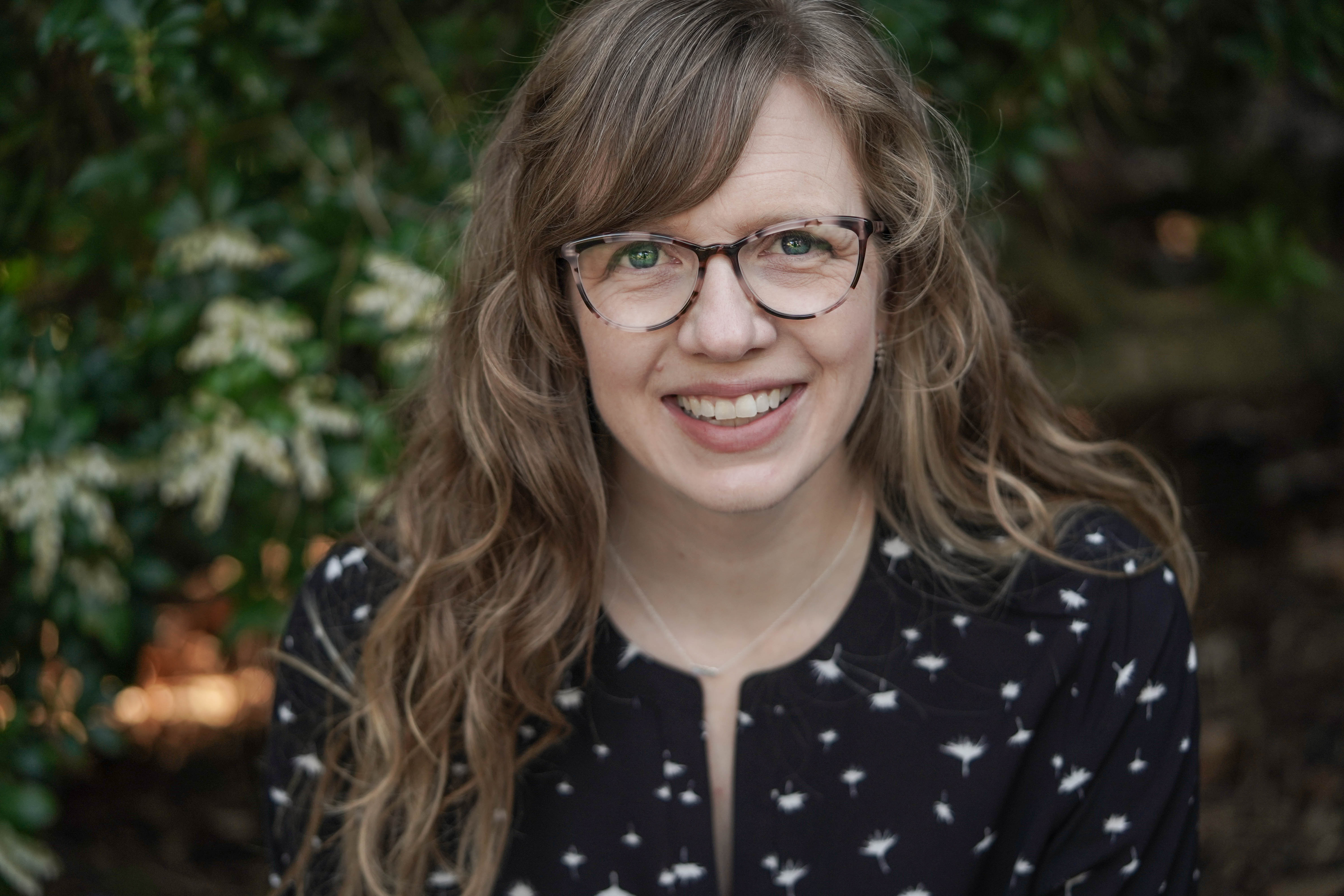 |
*New* Funding Opportunity from the Northwest Climate Adaptation Science Center: 2025 Faculty Fellowship Program, Consortium-Directed Funding (Info Session on 5/8/24, Due 7/15/24)
*New* Call for Submissions for the Wittgenstein Centre Conference 2024 on “Delayed Reproduction: Challenges and Prospects” (Due 5/15/24)
|
The Wittgenstein Centre Conference 2024 (WIC2024) will take place from 21-22 November 2024 in Vienna, Austria and invites for submissions. This year’s conference on “Delayed Reproduction: Challenges and Prospects” will focus on shifting trends, drivers and consequences of delayed reproduction, paying special attention to biological constraints as well as to the impact of assisted reproduction technologies and their potential role in shaping future fertility trends.
(read more)
|
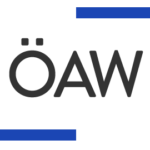 |
*New* Call for Applications: UW RDRC And IRP Extramural Mentored Fellowships On Poverty, Retirement, And Disability Research (Due 5/15/24)
*New* The Center for Statistics and the Social Sciences (CSSS) Celebrates 25 years! (5/16/23-5/17/23)
|
The Center for Statistics and the Social Sciences (CSSS) will be recognizing its 25th anniversary this academic year. In addition to highlighting special themes during the seminar series, CSSS will hold a celebratory event on campus on May 16th & 17th, 2024 that will bring alums, friends, and campus partners together with workshops, poster sessions, scientific sessions, and ample opportunities for socializing. Please note these dates in your calendar and keep your eyes posted for more details.
(read more)
|
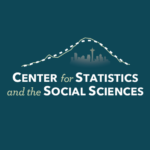 |
*New* Applications Open for the Washington Sea Grant Keystone Fellowship (Due 5/17/24)
|
The Washington Sea Grant (WSG) Keystone Fellowship is an exciting opportunity for recent master’s or doctoral students in ocean, coastal or policy studies to collaborate on science and policy initiatives, prioritizing environmental justice, equity, and inclusion in their work. With mentorship and professional development at its core, the fellowship program offers hands-on involvement in projects shaping Washington’s marine ecosystems and fostering pathways for underrepresented individuals into related careers. Applications are due May 17th.
(read more)
|
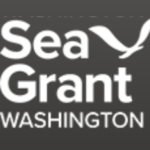 |
*New* JSDE Seminar to Host Matt Lowe (5/20/24)
|
JSDE (Joint Seminar in Development Economics) is excited to host Matt Lowe on May 20th from 11:00-12:30 in 410 Savery. Lowe is an assistant professor in economics at the Unversity of British Columbia. More details on this talk to come!
(read more)
|
 |
*New* Request for Proposals: How Effective Was the Fiscal Response to the COVID-19 Recession for U.S. Workers? (Due 5/20/24)
Many CSDE-Relevant Grant Opportunities at NICHD!
|
The NICHD has listed many grant opportunities that should be of interest to CSDE affiliates. Check out the list here. If you are interested, CSDE can help you with providing ‘eyes’ for feedback on the narrative, contacting a program officer, more formalized mock review panel of experts to provide feedback on a penultimate draft, a summer grant writing program, or scientific methods consultations. We’re happy to support your science! Just ask!
(read more)
|
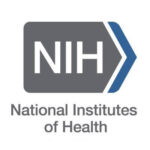 |
CSDE Population Research Planning Grants (PRPGs) (Rolling deadline)
|
Population Research Planning Grants (PRPGs) are designed to provide in-kind support and/or funds of up to $25k* to support a wide array of activity types throughout the development of a research project. As part of our mission to complement rather than duplicate other campus opportunities such as the Population Health Initiative seed grants, we will consider funding a variety of activities. See a list of example activities in the full story!
(read more)
|
 |
CSDE Matching Support to Supplement On-campus Funding (Rolling deadline)
|
CSDE Matching Support includes in-kind or monetary support to accompany a submission to other on-campus funding mechanism, such as PHI, EarthLab, or Urban@UW. All projects must have a CSDE affiliate who is UW faculty and is listed as a PI or co-PI, with any number of other collaborators. Note that we require (PRPGs) or strongly suggest (matching funds) contacting either Development Core Director (Steven Goodreau) or CSDE Director (Sara Curran) to discuss possibilities for your specific proposal before submission.
(read more)
|
 |
|

